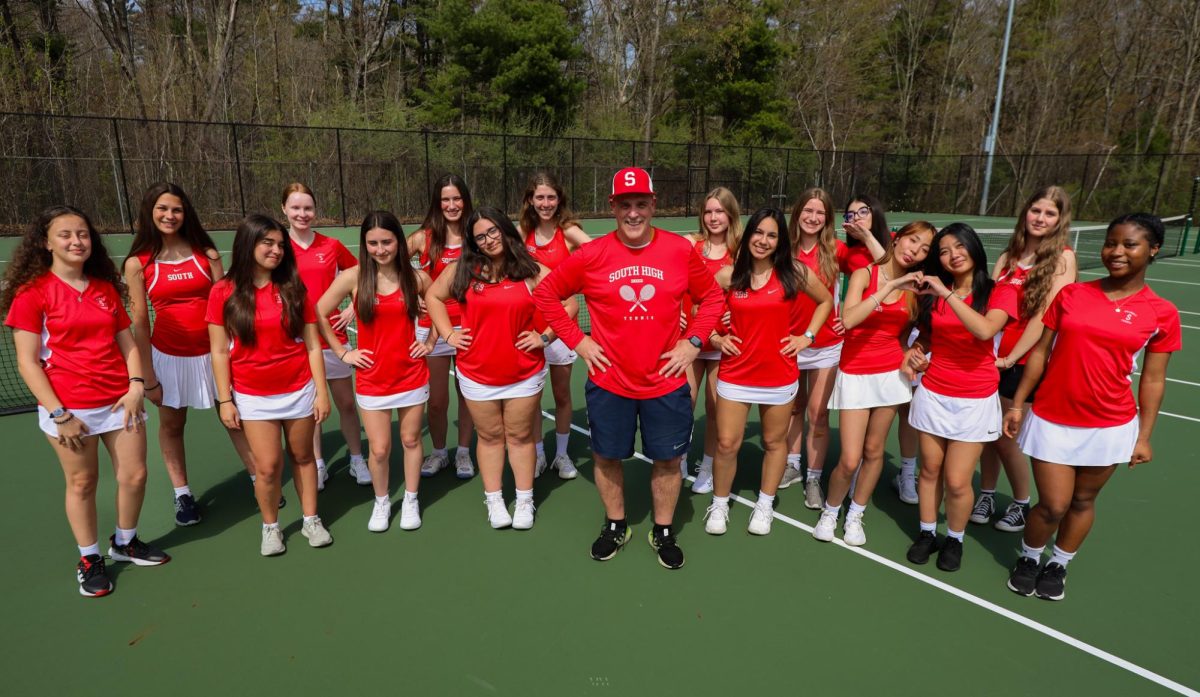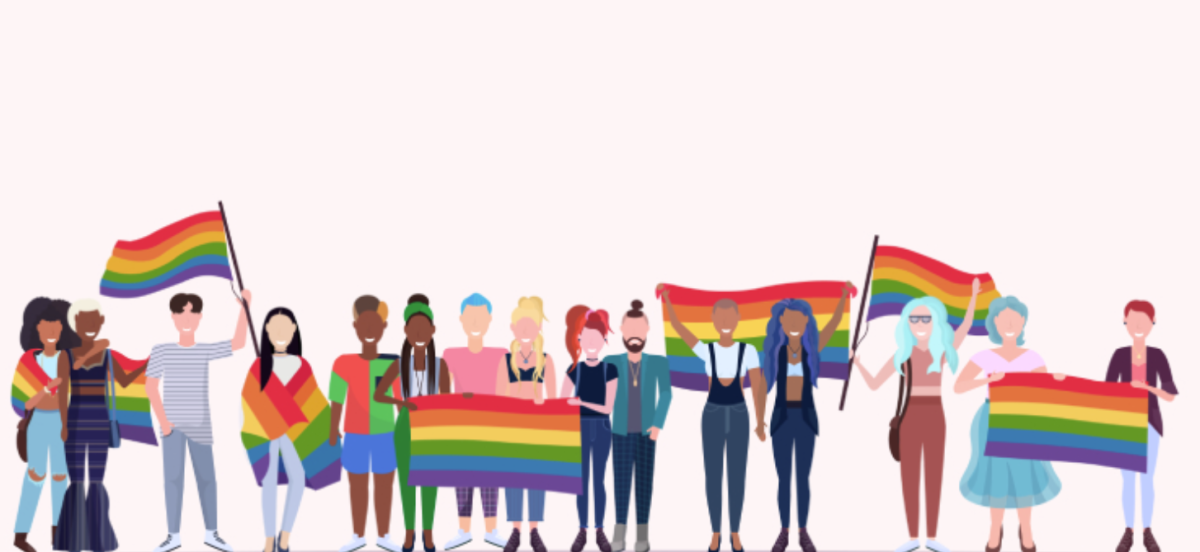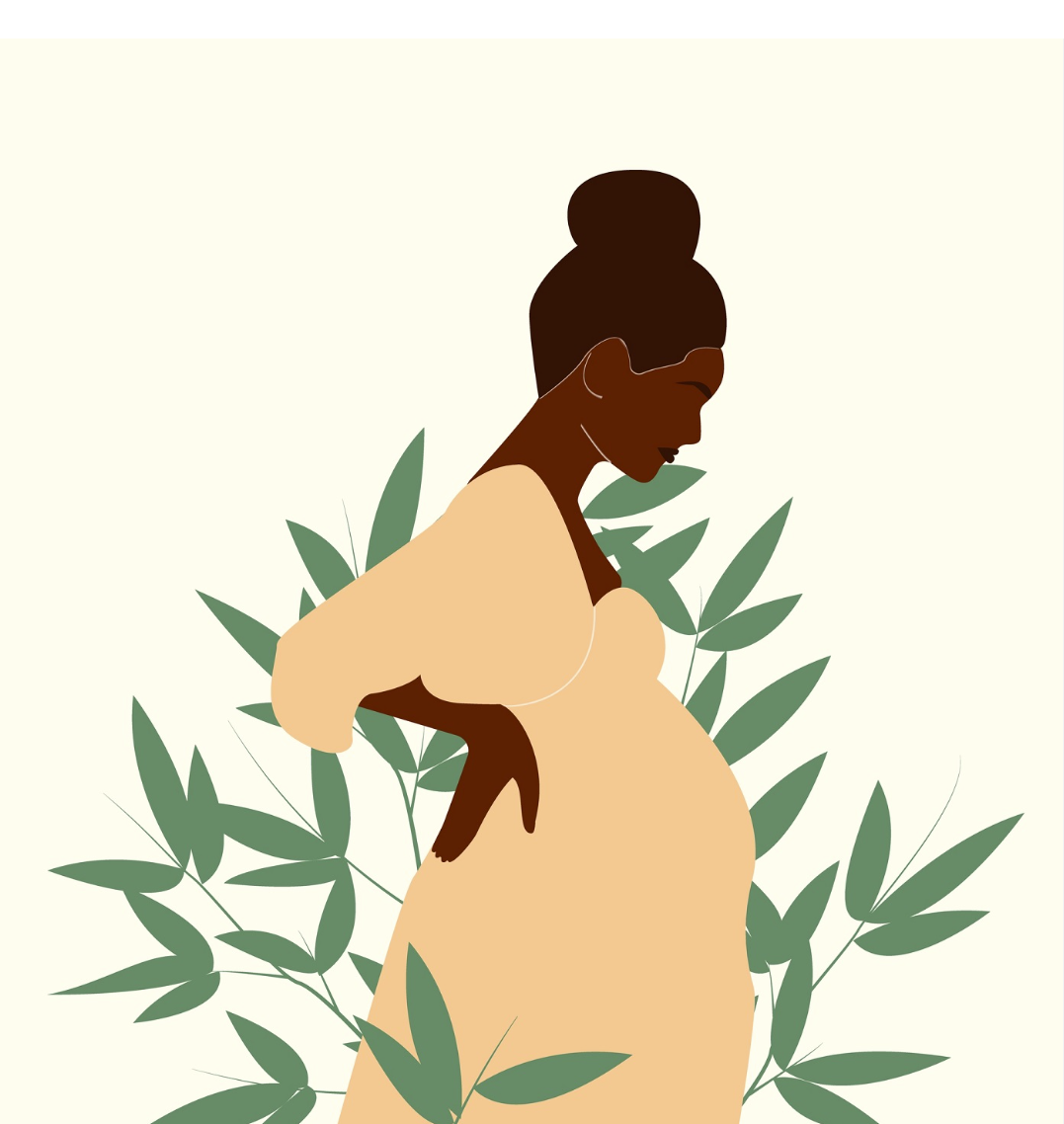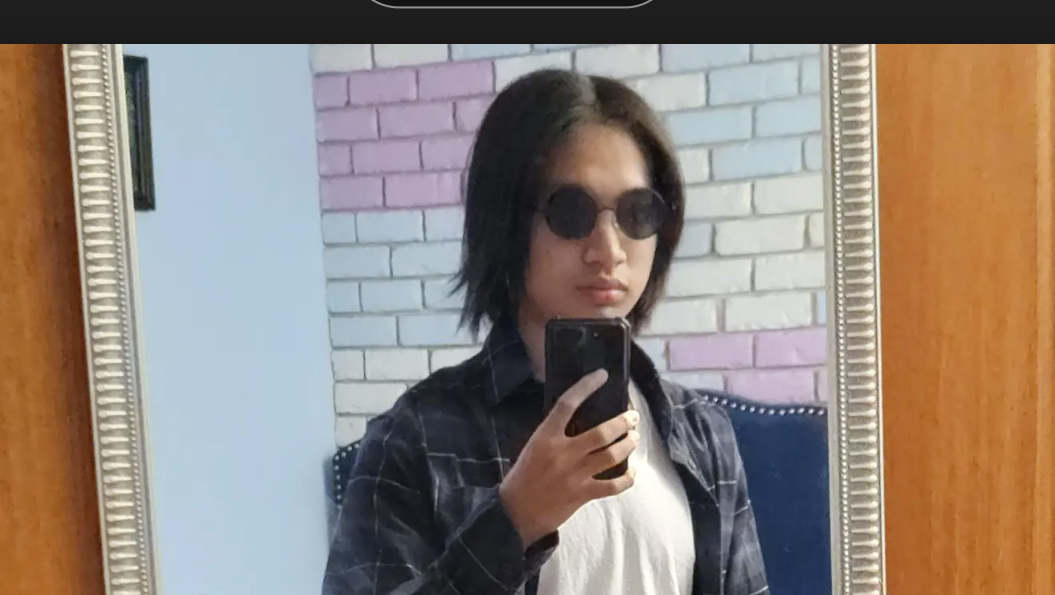This year, students of Ms. Ledoux’s Dual Enrollment ENG 102 class were assigned the task of a large scale research assignment on a topic of their choice. Senior Henry Nguyen chose an important topic, and produced a thoughtful, well researched academic research paper that not only showcases Henry’s talent and the college level work happening in our classrooms, but is also relevant to our efforts to see and support all members of the South High community.
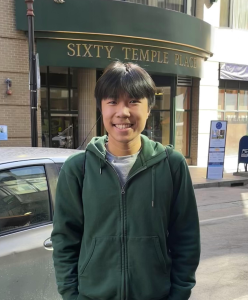
Humor has the natural ability to cultivate a sense of community, and has also been proven that laughter benefits human health. Humor takes on multiple forms to solve problems, which can alleviate awkward situations, relieve stress, and address controversial topics. But with this power, humor can also deviate from being helpful, to harmful quite easily by making fun of smaller groups.
I have had out-of-classroom experiences overhearing conversations and comments made by my peers, and teachers that specifically harm minorities. With these experiences in mind, I want to focus my lens on queer studies about heteronormativity, and how humans normalize straight, cisgendered relationships, while excluding others who diverge from this path. Moreover, I want to study discrimination that students and staff members have recalled, making connections on how these jokes incentivise the perpetuation of hate. Throughout my research, I’ve actively interviewed student and staff participants to explain their high school experiences. I’ve learnt why these forms of hate continue to be widespread around my school, and methods to uplift student voices. Misconceptions about Queer topics fuels current debates including homosexuality and gender identity, which continues to be a relevant topic of discussion. I want to fill in this gap by talking about Queerness, and its portrayal in large scale society, specifically at South High School.
The US education system lacks consistency and accuracy to address the issues minority groups face. It was not until I had the freedom as a high school upperclassman to enroll in courses including African American Studies, and Latin American history. With these historical advancements showcasing minority perspectives in history, a gap that our school faces is the implementation of gender education. Some states even prohibit gender and sexuality discourse to the point where legal action has been taken by states like Florida to prevent Queer topics from being taught. On August 3, 2023, College Board made the announcement that the state of Florida effectively banned the AP Psychology course since the curriculum taught aspects of Queer theory (Najarro, I. 2023, para. 5). On August 9th, Florida school districts made a follow-up statement that AP Psychology courses can be taught, but schools had already resorted to other psychology courses that did not include topics about gender, or sexuality. Governing academic fields on what can and cannot be taught only halts social integration of minority groups, which ultimately delays mass marches, riots and protests that are the foundation of social change. For effective change to proceed, the US government should consider supporting youth voices that stem away from heteronormative ideals to gain non-traditionalist perspectives.
Since Massachusetts allows for the study of Queer topics in the high school setting, gathering input through conversational interviews at South High will best gauge life experiences. Originally, my research focused on the gay Community, and how anti-gays jokes could have an impact that leads to homophobia. Although this important field of research was brought to my attention through preliminary research, I expanded the scope of discussion from the gay community, to generalized Queer Theory, a process which aims to understand the reinforcement of heteronormativity, and its consequences on straight and gay individuals (Illinois Library, 2019, para. 5). Additionally, Queer is in reference to any individual who is not heterosexual, or non-cisgendered. A most recent study done by Kerith J. Conron and Andrew R. Flores from the Williams Institute found 5.5% percent of US adults identify as LGBT, and 15.2% of people ages 18-24 identify as LGBT, which is around 4.7 million citizens, based on 2020-2021 data (Flores, A., & Conron, K., 2023, Table 1). There is a steady increase in youth that identify as LGBT, and it is not due to Queer movements actively seeking to convert cis-gendered heterosexual people. Rather, acceptance has spread from the support and understanding from friends and family, making Queer individuals more comfortable to express themselves. This further highlights the need for classroom discussion about gender and sexuality in the classroom. Especially in Southern US states that have a history of conservative ideas about marriage and gender, such a large population of Southern US who identify as LGBT will need more voices to support Queer Youth.
The oppression for LGBT people has a rooted history of violence, and it is important to be knowledgeable about the history of homophobia and transphobia, as gay men and women have experienced backlash for simply existing. The National Holocaust Centre and Museum focuses on empowering Jewish voices to acknowledge anti-Jewish racism. Between 1937 – 1939, an estimated 90,000 men were arrested by the Nazi government for homosexual activity, thousands of gay men were imprisoned or sent to concentration camps, and the Nazi party committed arson on the Institute of Sexual Science, resulting in 12,000 books being burnt (The National Holocaust Centre and Museum, 2020, paras. 2 & 6). In reality, the Holocaust ended 80 years ago, so forms of hate and injustice persist in today’s society given that 3 generations ago, the Nazi Party came to existence. During the Holocaust, gay people were demonized as not fit to live in society, to the point where people were sent to be killed. This genocide on Queer individuals was validated through the Nazi revision of Chapter 175, which was a criminal code that legalized homphobia:
A man who commits sexual acts (Unzucht) with another man, or allows himself to be misused for sexual acts by a man, will be punished with prison (United States Holocaust Memorial Museum, 2021, para. 6).
This piece of legislation is additionally sexist, as they purposely exclude gay women, believing that women had little threat to the Nazi party, possessing no positions of power, compared to the threat of gay men who posed a “greater threat” to the Nazi regime. In the United States today, legally, there are no laws that purposefully imprison gay individuals, though, social taboos still persist as false stereotypes and hate continue to be passed down.
One specific gender is partially responsible for the perpetuation of homophobia: insecure men. Researchers publishing from the Springer Science + Business Media Journals created an experiment to test the male tendency to conform to traditional gender roles (O’Connor, E et al., 2017, para. 1). They found men who had their masculinity threatened, later found sexist and anti-gay humor to be funnier when they were given the label of having a more feminine personality type. O’Connor’s study suggests that homophobia, disguised as humor, serves as a coping mechanism to gain back feelings of masculinity. The path in which a child is raised is heavily impacted by their biological sex at birth. Generally, parents will raise boys with masculine traits and ideas, and girls with feminine traits, but fulfilling either concept is not human instinct. One’s behavior is learnt by surrounding beliefs as humans have historically chosen their gender identity to conform to their environment. The confusion of combining concepts about biological sex and gender identity limits self-expression, creating a gender binary that forces people to select their gender based exclusively on their sex at birth. Gender expression that does not reflect one’s biological sex is discouraged as it diverges from social norms – it has even been laughed at. When the men in this experiment wanted to acquire back their masculinity – given to them since the beginning of their youth – these men needed security, deeming women and gay people as “others”, resulting in the perpetuation of hate to support the punchline of the joke.
Speaking from my own experience, gay jokes continue to be casually thrown around and Mx. K, a staff member who has worked at South High School for 12 years, would agree about the persistence of harmful jokes. As a non-binary teacher who uses they/them pronouns, they expressed a sense of nervousness before taking on the advisor position for LGBTQ+ club noting, “You don’t know who is and who isn’t supportive (S. Korunow, personal communication, 2024)”, which is a common concern that Queer individuals face. The LGBTQ+ club continues to create a supportive environment for Queer students to show their pride by implementing spirit pride week, movie nights and karaoke. Similar to initiatives from the old South High building, Mx. K and their students pushed gender neutral bathrooms in support of the Queer student population. Mx. K described the level of respect that students have on gender identity, how, “Usually, people are okay if I correct them, but there is the occasional person who just doesn’t try (S. Korunow, personal communication, 2024)”, highlighting why misgendering is a major issue. This common experience affects non-binary and transgender individuals, which increases feelings of gender dysmorphia, defined as internal conflicts between one’s gender identity with their assigned biological sex (Mayo Clinic Staff, 2024). Combining the presence of teacher and student allies with the efforts made by the LGBTQ+ club have reduced instances of discrimination targeted at Queer people, although, it is still important to acknowledge the shared student stories about teachers who push negative opinions about the LGBTQ+ community. Negative perspectives from students and staff in the classroom are entirely inappropriate. Teachers may have their own views outside of the classroom, but there are no exceptions to utter harmful personal beliefs that take up vulnerable classroom time.
Mx. K acknowledges the challenge in correcting others to use their preferred pronouns. “The hardest part is consistently speaking up for yourself (S. Korunow, personal communication, 2024)”, which can be challenging for youth that lack a strong support system. Homophobic jokes and Queer hate lifts heterosexual ideals on top, while shunning other perspectives down, so it is important to have the level of confidence to be comfortable in the inner-self before helping others. Furthermore, Mx. K strongly suggests, “finding a community that supports you. Finding adults that they trust, that will also advocate for them, whether they are queer adults or not (S. Korunow, personal communication, 2024).” Having a supportive community is especially important for Queer individuals that make up the minority of the world population. “It has definitely gone down”, Mx. K recognized when asked current experiences of discrimination, which proves that steps are being taken to uplift student voices. A statement from Bob Lê, a Queer identifying student, who has been at South High School for four years suggested to, “be brave, and don’t care how people think of you (B. Lê, personal communication, 2024)”. This crucial yet simple piece of advice supports the development of a greater sense of self to face adversity. There are friends and staff members willing to pass on advice; it is just the initial push for recognition that youth voices need in order to ignite confidence to speak up.
It would be inefficient to blatantly ask others to stop making queer jokes. One of the best approaches for Queer voices could be writing for the Colonel Chronicle, South High School’s news source, suggested by Bob Lê. For those that are comfortable, people may create blogs about personal student stories, sharing their experiences that can open the door to create a sense of community for Queer individuals. The Apricot Journal, South High’s literary journal, can also be one’s location for self-expression to show impactful experiences in a poetic format. Secondly, active participation in the LGBTQ+ club would directly help spread awareness, potentially creating a unity group for straight and Queer students. Last but not least, the legalization of Queer education would allow student exploration to discover the history of pride movements, present identities, which creates an environment to comfortably diverge from heteronormativity.
There are allies that support the success of Queer individuals. With the ever-growing resources provided at South High, the student body can collectively work in order to regain a sense of pride in the Queer community.
Notes
- The student name is a pseudonym
References
(B. Lê, personal communication, 2024).
Flores, A., & Conron, K. (2023). Adult LGBT population in the United States. Williams Institute. https://williamsinstitute.law.ucla.edu/publications/adult-lgbt-pop-us/
(S. Korunow, personal communication, 2024).
Mayo Clinic Staff. (2023). Gender Dysphoria. Mayo Clinic. https://www.mayoclinic.org/diseases-conditions/gender-dysphoria/symptoms-causes/syc-20475255
Najarro, I. (2023). The florida ap psychology controversy, explained. Education Week. https://www.edweek.org/teaching-learning/the-florida-ap-psychology-controversy-explained/2023/08
N/A (2019). Queer Theory: Background. Illinois Library https://guides.library.illinois.edu/queertheory/background
O’Connor, E., Ford, T., & Banos, N. (2017). Restoring Threatened Masculinity: The Appeal of Sexist and Anti-Gay Humor. Springer Science + Business Media Journals. DOI:10.1007/s11199-017-0761-z
The National Holocaust Centre and Museum (2020). Homosexual victims of Nazi persecution. The National Holocaust Centre and Museum. https://www.holocaust.org.uk/news/homosexual-victims-of-nazi-persecution
United States Holocaust Memorial Museum, Washington, DC. (2021). United States Holocaust Memorial Museum. Holocaust Encyclopedia. https://encyclopedia.ushmm.org/content/en/article/paragraph-175-and-the-nazi-campaign-against-homosexuality


